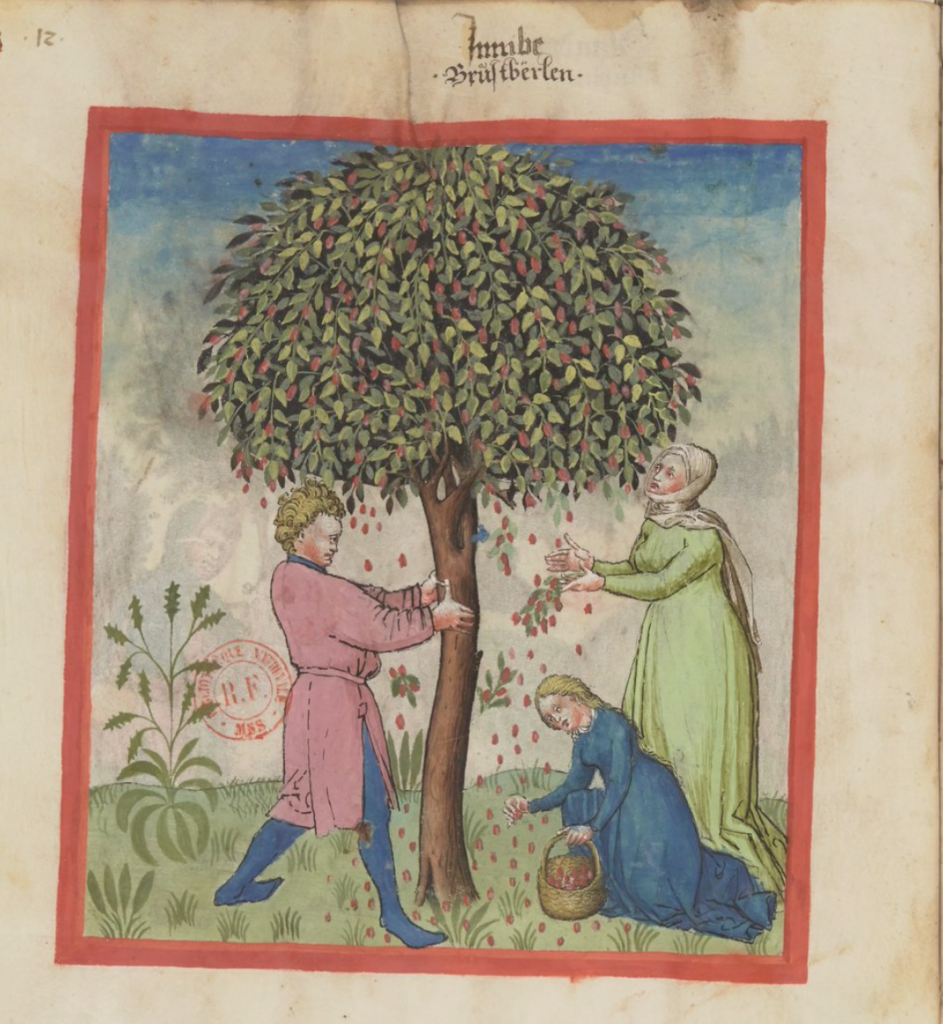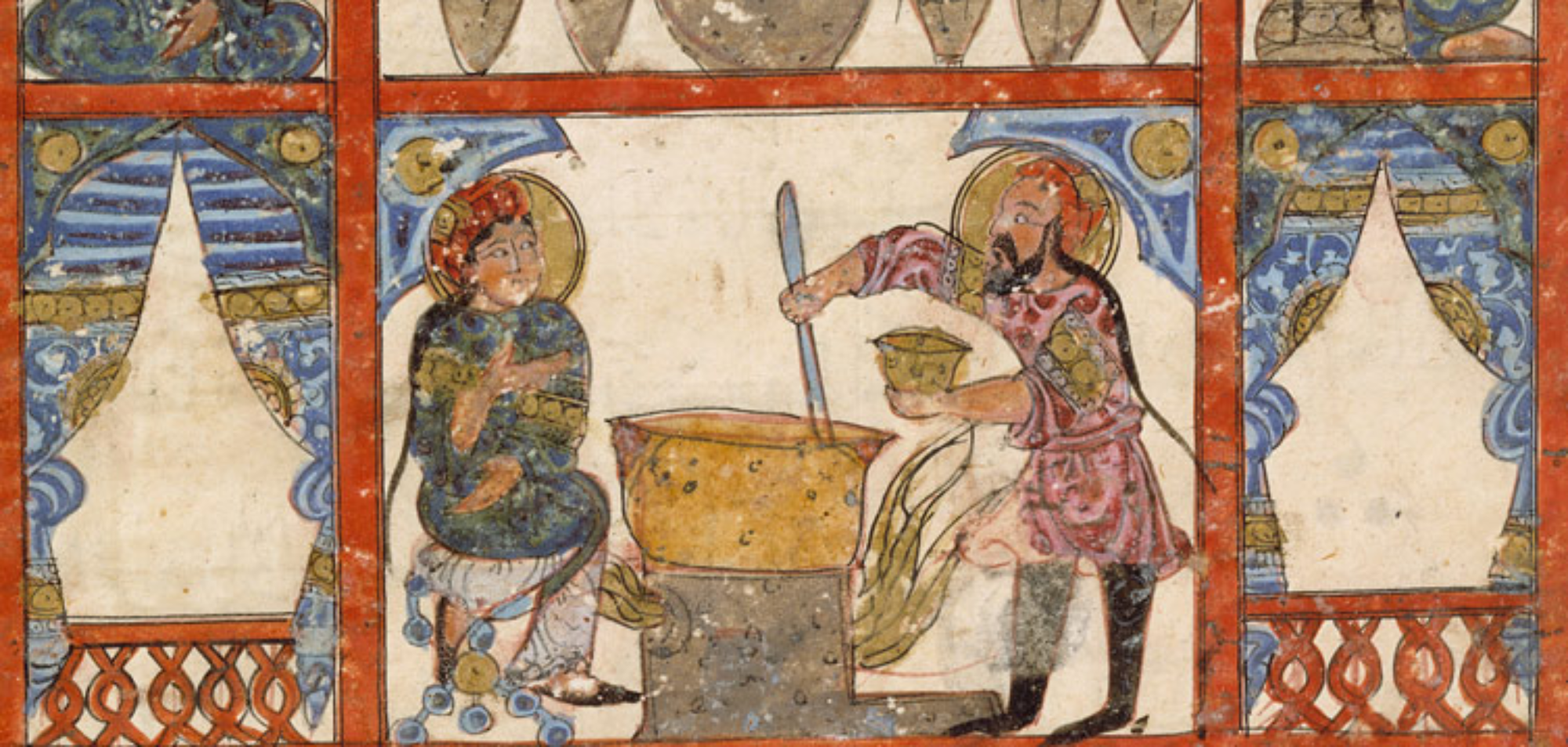Also known as the Chinese date, the jujube (Ziziphus jujuba, Z. vulgaris) which is green and bitter when it is unripe, but as it matures, it changes colour and shrinks, eventually looking like a small sweet date. The jujube tree is native to central Asia, and the fruit was already collected there for food as early as 6000 BCE. The tree later spread to the Mediterranean, where it was cultivated by the 1st century BCE. It was introduced to the Romans from Northern Africa. It is related to the lotus (Ziziphus lotus) associated with the story of the ‘Lotus Eaters’ (lotophagi) in Homer’s Odyssey.
Another species in the same genus is the so-called Christ’s thorn jujube (Ziziphus spina-christi) since it was thought that Jesus’ crown of thorns was made from the tree. Known in Arabic as sidr (سدر) or nabaq (نبق), this variety is native to parts of Africa and Western Asia and was already known to the Ancient Egyptians, who used its fruits and leaves for medical purposes. It is also mentioned in the Qur’an where it refers to the ‘lote tree’, most notably the sidrat al-muntahā (سدرة المنتهى, ‘the lote tree of the furthest boundary’), which marks one extreme of the heavenly abode. It also grows in the Arabian Gulf, particularly in Oman and Qatar, where it survives in the harsh conditions because of its hardiness and ability to draw water deep underground,
The jujube was used in Persian as well as in medieval Arab cooking, often in conjunction with almonds and raisins. Jujubes from Gorgan (Iran) were said to be the best, but it was also reported to be grown in Greater Syria. The fruit is mostly associated with Egyptian cuisine, where it was called for in a variety of dishes, such as the ‘Nubian Lady‘ or the local twist on the Abbasid classic ‘sikbaj‘. It was also eaten fresh or dried, whereas the wood of the tree was used in carpentry.
Medically, jujubes were said to be astringent and beneficial for the blood and lungs. When the juice is cooked, it is useful against hotness in the stomach, and coarseness in the chest. However, it engenders phlegm and slows down digestion. According to the physician Ibn Butlan (11th c.) jujube also cause constipation and have very little nutritional value, but are useful as an emmenagogue. However, he generally advised against eating the fruit, particularly for older people.

